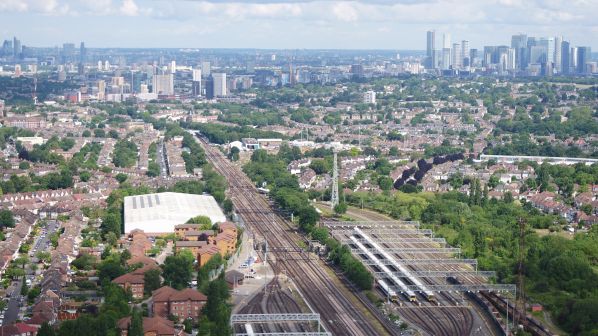BRITISH infrastructure manager Network Rail (NR) has invited private companies to invest in the renewal of the lineside telecom infrastructure in return for the right to commercialise spare bandwidth from the upgraded network.
NR says the deal, which is expected to save the infrastructure manager up to £1bn, will offer increased reliability and train performance, improve safety for passengers and frontline workers, and be the first step towards boosting connectivity for passengers.
The plan aims to secure the funding necessary to upgrade telecoms infrastructure alongside the rail network without relying on subsidies from the government or passengers.
More than 16,000km of data cables, which carry information essential to running the railway such as signalling, trackside sensors and CCTV, as well as providing internet for trains, depots and offices, are due to be upgraded.
As NR will not require the full capacity of the new fibre optic cables, there will be sufficient bandwidth for third-parties to run their own telecoms services, making use of the significant geographical reach of the national rail network to meet demand for improved fibre connectivity across Britain. These companies will also be able to take advantage of the lower cost of fibre deployment along the railway when compared with other deployment methods.
If successful, the deal would offer a number of benefits for passengers, rail workers and those living in rural areas, including:
- Train performance: Enhancing telecoms infrastructure will connect different parts of the infrastructure such as trains, signalling and level crossings, ultimately reducing delays and disruption. For example, new fibre optic sensors can detect landslips near the railway and better monitor the lineside for fallen trees.
- Safety: The deal would allow NR to more effectively monitor the condition of rail assets, meaning that faults can be identified and located in real-time. This will reduce the number of manual inspections required and supports a more targeted approach to engineering.
- Train connectivity: The deployment of new fibre optic cable along all main lines would help to improve connectivity for passengers. While this deal in isolation would not deliver all potential passenger connectivity benefits, laying the fibre would be an important foundation for better connectivity through upgrades to lineside telecoms masts and on-board train equipment.
- Rural connectivity: Services provided by the investor can also help to support the government’s commitment to roll out gigabit-capable connections across Britain, with £5bn allocated to supporting deployment to hard-to-reach areas.
“Our telecoms infrastructure requires an upgrade if we are to meet the growing connectivity needs of passengers and the railway itself - particularly to make sure our fibre capacity can handle more data, at greater speed, more reliably,” says NR chief executive, Mr Andrew Haines. “This proposal makes good business sense for all parties. We get a cutting-edge, future-proof telecoms infrastructure; the investor gets a great business opportunity; train passengers in Britain get an improved service for years to come; and the taxpayer saves a significant amount of money.”
“Upgrading the fibre optic cable network beside our railways has the potential to create a more digitally-connected railway and could lay the foundations towards eradicating the blackspots and phone signal outages which infuriate passengers,” says transport secretary, Mr Grant Shapps.
Interested parties should contact Lazard, NR’s advisers on the deal, at [email protected]. NR will review all expressions of interest and aims to finalise the transaction with a preferred bidder by the end of 2021.

